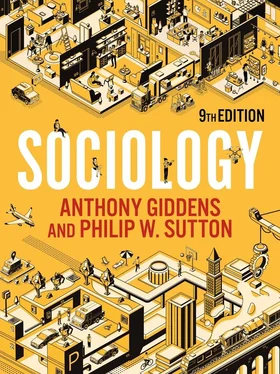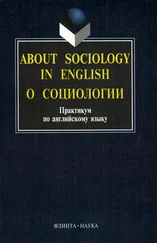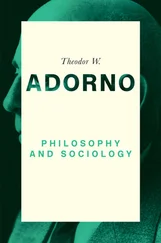Marx wrote about the broad sweep of human history, but his primary focus was on the development of capitalism: a system of production that contrasts radically with all previous economies. Marx identified two main elements of capitalism. The first is capital – that is, any asset, including money, machines or even factories, that can be used or invested to make future assets. The accumulation of capital goes hand in hand with the second element, wage-labour. Wage-labour refers to the pool of workers who do not own any means of production themselves but must find employment provided by the owners of capital.

Some ‘Occupy’ protests around the world targeted ‘greedy’ forms of capitalism in which vast wealth accumulates among a tiny percentage of the population while ‘the 99 per cent’ majority struggle to make a living. Twenty-first-century anti-capitalist movements continue to take their inspiration from the analyses of Marx and Engels, though they rarely advocate communism as their preferred alternative.
Marx argued that those who own capital – capitalists – form a ruling class, while the mass of the population make up a class of waged workers – the working class. As industrialization spread, large numbers of peasants, who used to support themselves by working the land, moved to the expanding cities and helped to form an urban industrial working class, which Marx also called the proletariat. For Marx, this means that capitalism is a class system in which relations between the two main classes are characterized by an underlying conflict. Although owners of capital and workers are dependent on each other – capitalists need labour, workers need wages – this dependency is unbalanced. Workers have little or no control over their labour, and employers are able to generate profit by appropriating the products of the workers’ labour – paying them less than their labour is worth.
Marx saw conflicts between classes as the motivation for historical development; they are the ‘motor of history’. Marx and Engels (2008 [1848]) wrote at the beginning of The Communist Manifesto , ‘The history of all hitherto existing society is the history of class struggles.’ According to Marx, there have been a series of historical stages, beginning with ‘primitive communist’ societies of hunters and gatherers and passing through ancient slave-owning systems and feudal systems with landowners and peasant farmers. The emergence of a new commercial or capitalist class displaced the landed nobility, and, just as capitalists had overthrown the feudal order, so too would the capitalists be overthrown by the proletariat.
Marx theorized that a workers’ revolution would bring about a new society in which there would be no large-scale division between owners and workers. He called this historical stage communism. This does not mean that all inequalities would magically disappear, but that society would no longer be split into a small class that monopolizes economic and political power and a mass of people who benefit little from their labour. The economic system would be under communal ownership, and a more humane, egalitarian society would slowly emerge.
Marx’s ideas had a far-reaching effect on the twentieth century. Until only a generation ago, more than a third of the Earth’s population lived in societies whose governments derived inspiration from Marx’s ideas. However, a revolutionary wave that began in Poland in 1989 swept aside communist regimes across Eastern Europe, ending with the collapse of communism in the Soviet Union – its stronghold – in 1991. Even in China, where a communist party still holds political power, capitalist economic development has taken a firm hold. In spite of the spread of capitalism around the world, the working-class revolution to which Marx looked forward seems no closer today than it did in Marx’s own time.
Like Marx, Max Weber (1864–1920) was not just a sociologist; his interests ranged across many areas. He was born in Germany, where he spent most of his academic career, and his work covered economics, law, philosophy and comparative history as well as sociology. He was also concerned with the development of capitalism and how modern societies differed from earlier types. In a series of studies, Weber set out some of the basic characteristics of modern industrial societies and identified key issues that remain central to sociology today.
Weber recognized class conflict but saw it as less significant than Marx. In Weber’s view, economic factors are important, but ideas and values can also bring about social change. His celebrated and much discussed work The Protestant Ethic and the Spirit of Capitalism (1992 [1904–5]) proposed that religious values – especially those associated with Puritanism – were of fundamental importance in creating a capitalistic outlook. Unlike the other early sociologists, Weber argued that sociologists should study social action – the subjectively meaningful actions of people that are oriented towards others. It is the job of sociology to understand the meanings behind all of those individual actions.
An important element in Weber’s sociological perspective is the ideal type. Ideal types are models that are created to alert us to some social phenomenon and to help us to make sense of it. These hypothetical constructions can be very useful in pointing researchers towards a subject. For example, we could construct a simple idealtypical ‘terrorist group’, based on the most striking aspects that have been observed in the cases of the IRA in Northern Ireland, ETA in Spain, the Red Brigades in Italy and the global networks of ISIS/Daesh. We might note that all these groups operate outside mainstream politics; they use violence against the state and they often target civilians to demonstrate their power. We can then use this ideal type to analyse other real-world instances of political violence.
Of course, in reality there are many differences between our four groups. The Red Brigades were communist, the IRA was an Irish nationalist group, ETA was a Basque separatist organization and ISIS/Daesh is a global Islamist network. Nonetheless, using our ideal type we can accommodate these differences while also recognizing that they share enough features to be described collectively as ‘terrorist groups’. It is important to note that, by ‘ideal’ type, Weber did not mean that the conception was perfect or desirable. Ideal types are ‘pure’ or ‘one-sided’ forms of real social phenomena. But constructing an ideal type of terrorism (or anything else) from common aspects of many observed cases is more effective and useful than using one real terrorist group as a template for others.
Weber saw the emergence of modern society as accompanied by important shifts in patterns of social action. People were moving away from traditional beliefs grounded in superstition, religion, custom and longstanding habit. Instead, they engaged increasingly in rational, instrumental calculation that took into account efficiency and the future consequences of the action. In industrial society, there was little room for sentiment or doing things just because they had ‘always been done that way’. The emergence of science, modern technology and bureaucracy was described by Weber as rationalization – the organization of social life according to principles of efficiency and on the basis of technical knowledge. If religion and longstanding customs previously guided people’s attitudes and values, modern society was marked by the rationalization of politics, religion, economic activity and even music.
Читать дальше













